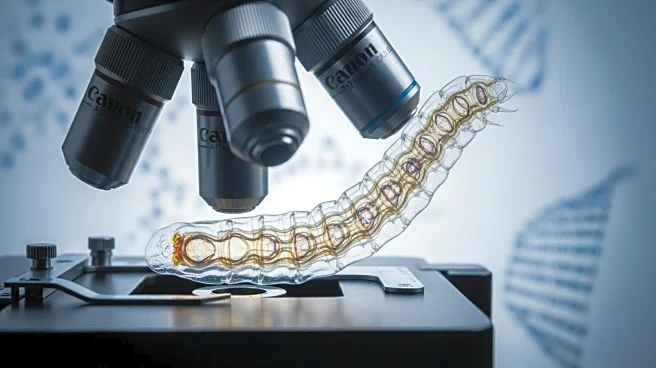What's Happening?
Researchers at the Wang Lab have discovered a novel mechanism by which longevity traits are passed from parent to offspring in the roundworm C. elegans. The study, led by Meng Wang at the HHMI Janelia Research Campus, reveals that changes in lysosomes, cellular organelles involved in recycling, can be transferred to reproductive cells through histones. These proteins play a crucial role in organizing and regulating DNA. The research highlights how epigenetic information, which modifies gene expression without altering the genetic code, can be inherited. This mechanism allows for the transmission of environmental adaptations, such as those induced by stress, from one generation to the next. The findings suggest that lysosomes, beyond their recycling function, act as signaling hubs influencing cellular processes and potentially affecting multiple generations.
Why It's Important?
This discovery has significant implications for understanding how traits related to longevity and stress adaptation are inherited. By identifying a pathway through which environmental changes in somatic cells are passed to germline cells, the research provides insights into transgenerational effects. This could help explain phenomena such as the impact of parental malnutrition on offspring. The study also challenges traditional views of inheritance, suggesting that non-genetic factors can play a substantial role in the transmission of traits. This could lead to new approaches in studying aging and developing interventions to enhance longevity and resilience to environmental stressors.
What's Next?
Future research may focus on exploring similar mechanisms in other organisms, including humans, to determine if these findings can be generalized. Understanding the role of lysosomes and histones in inheritance could open new avenues for therapeutic strategies aimed at promoting healthy aging and mitigating the effects of environmental stress. Additionally, the study may prompt further investigation into the role of epigenetic modifications in other inherited traits and diseases.










